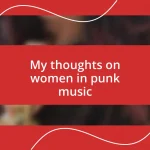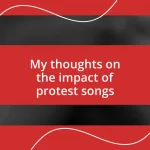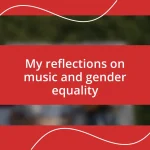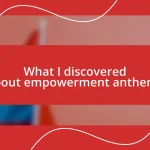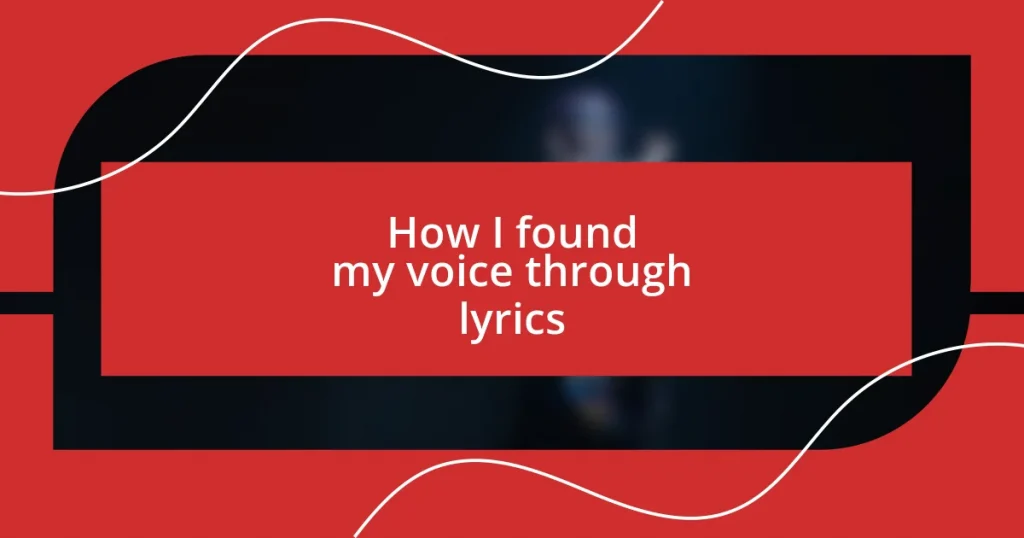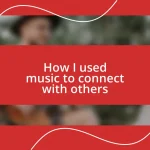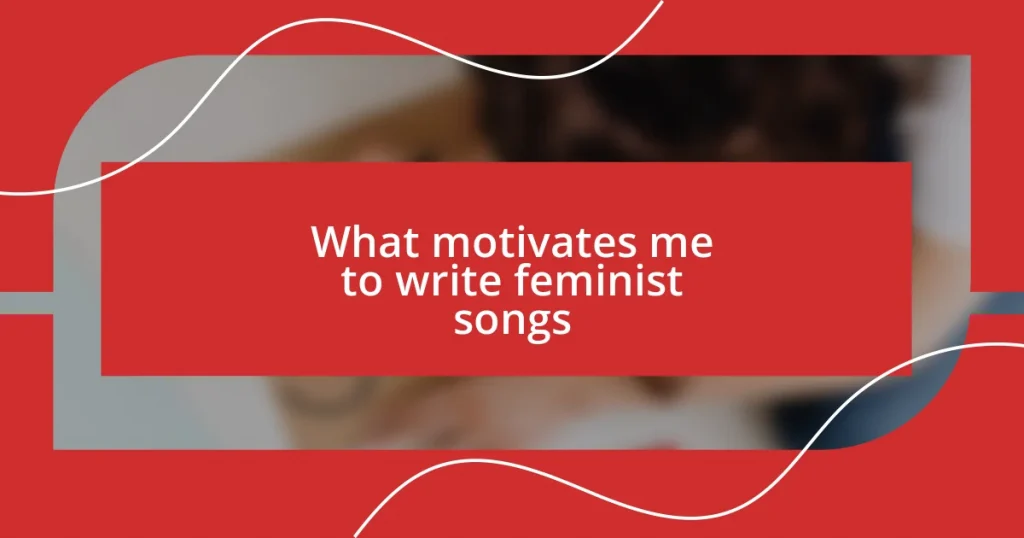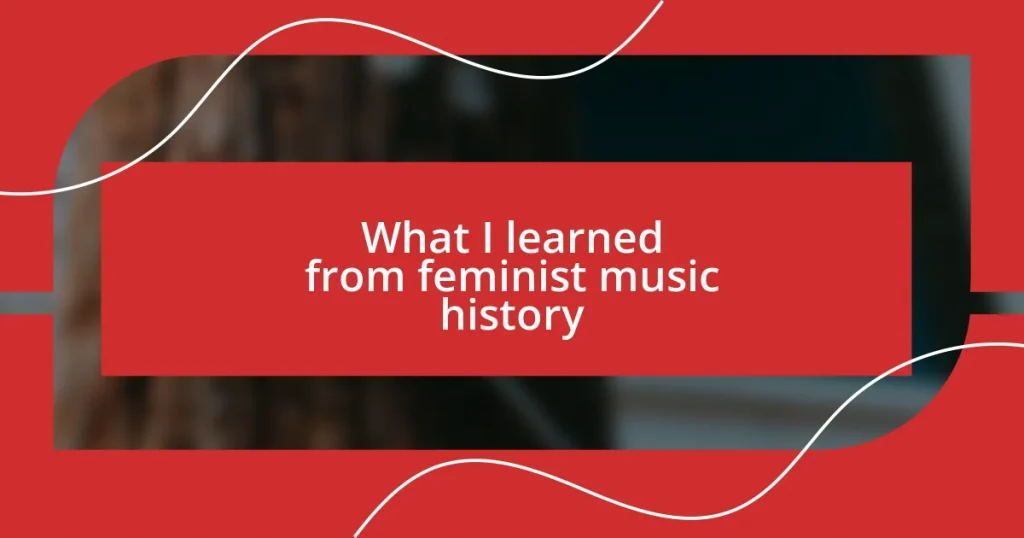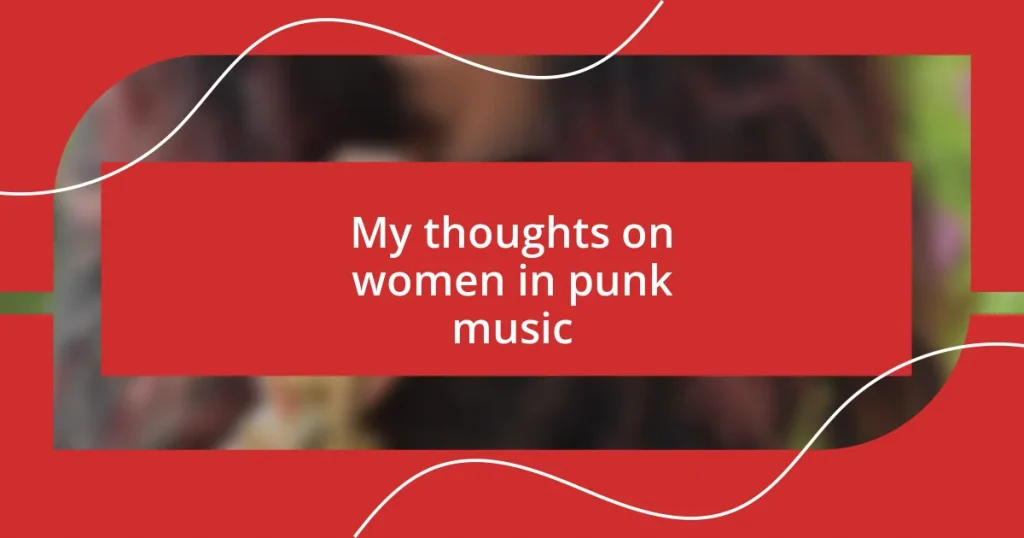Key takeaways:
- Lyrics are a powerful means of expressing complex emotions and can create deep connections with listeners by reflecting shared human experiences.
- Collaboration and feedback are essential in the songwriting process, offering new perspectives that can enhance creativity and improve lyrical impact.
- Personal experiences and vulnerability play significant roles in evolving an artist’s voice, allowing for authentic expression and artistic growth over time.
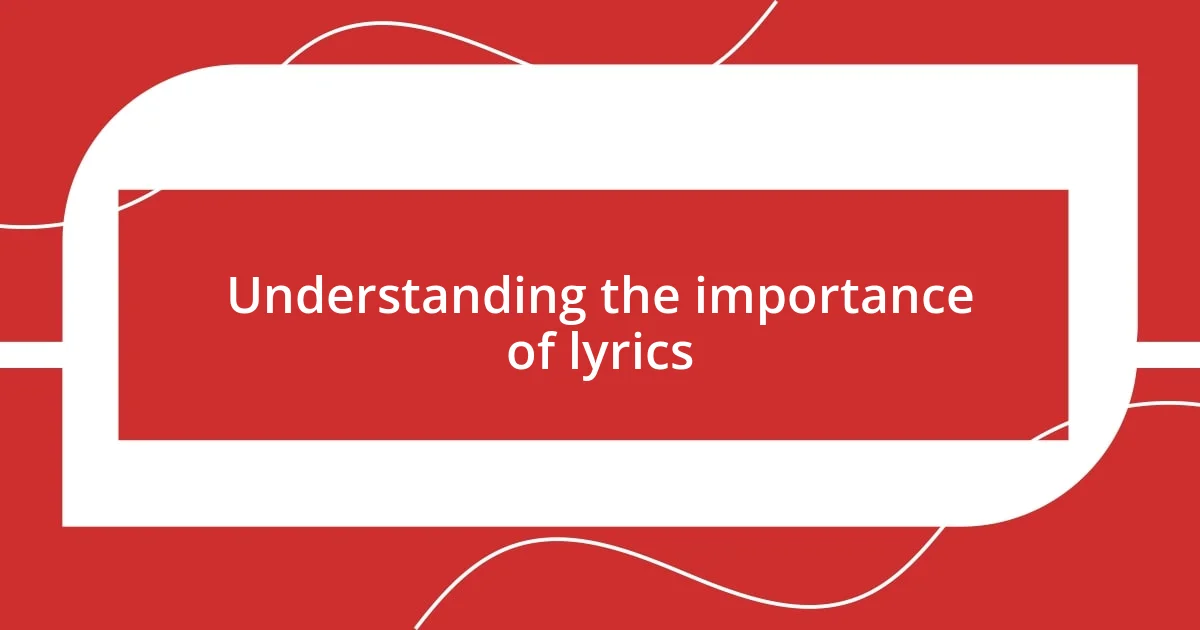
Understanding the importance of lyrics
Lyrics hold immense power; they can encapsulate emotions we often struggle to express. I still remember the first time I heard a song that perfectly articulated my feelings of heartbreak. It was as if the artist had peeked into my soul, and suddenly, I didn’t feel alone anymore.
Every lyric carries the potential to resonate deeply with someone, bridging personal experiences with universal truths. I find myself often wondering: How can a few lines evoke such vivid memories or feelings? From anthems of joy to ballads of sorrow, lyrics can transform our mood and perspective, highlighting their importance in the human experience.
In my journey, I’ve discovered that writing lyrics isn’t just an artistic endeavor; it’s a way to understand myself better. When I pour my thoughts into a song, I unravel the complexities of my emotions. Lyrics, after all, become a mirror reflecting our innermost thoughts, allowing us to connect with others on a profoundly intimate level.
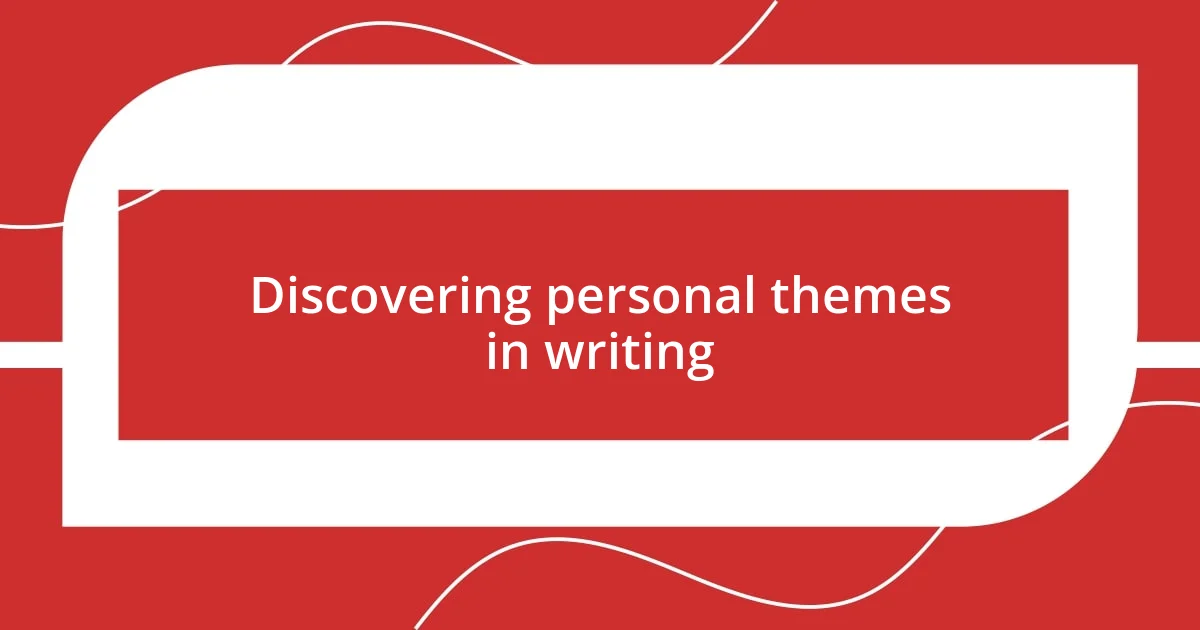
Discovering personal themes in writing
Finding recurring themes in my writing has been an enlightening part of my creative journey. For instance, I noticed a pattern where themes of loss and resilience often surfaced. During a particularly rough patch, I wrote a song about navigating grief. This process not only helped me process my emotions but also revealed the strength I didn’t know I had.
To help identify your personal themes, consider these approaches:
– Reflect on your experiences: Think about the moments that stirred deep feelings, be it joy, pain, or nostalgia.
– Journal regularly: This practice can uncover hidden themes as you revisit your thoughts over time.
– Analyze your lyrics: Look for words or emotions that frequently appear in your writing.
– Seek feedback: Share your work with someone who knows you well; they might see patterns you’ve overlooked.
– Experiment with different styles: Sometimes, changing your approach can illuminate new themes.
Each step you take not only enhances your writing but also brings you closer to understanding yourself.
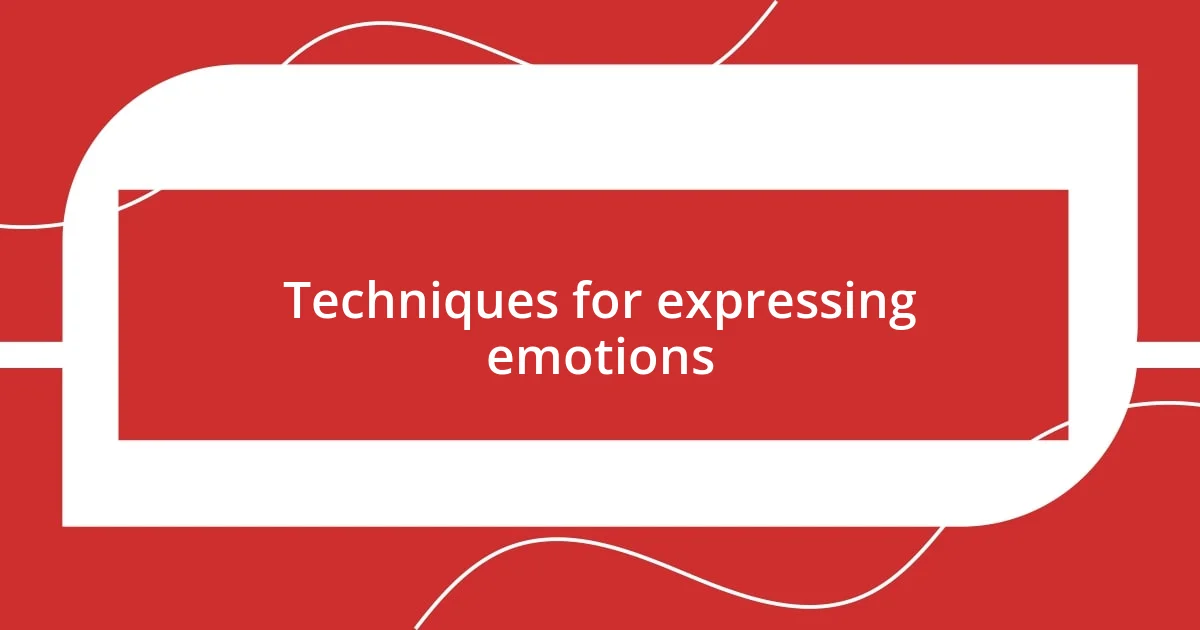
Techniques for expressing emotions
When it comes to expressing emotions in lyrics, I often rely on vivid imagery. There’s something about painting a picture with words that brings feelings to life. For example, I once wrote a song about summer sunsets, using colors and warmth to convey a sense of nostalgia. Those metaphors allowed listeners to visualize my emotions, creating a deeper connection to the underlying sentiment of longing.
Another technique I find valuable is storytelling. Sharing a personal anecdote can make lyrics more relatable and engaging. I remember crafting a song about feeling lost in a big city; the narrative woven through the lyrics depicted my search for belonging. By framing my emotions in a story, I invited listeners into my journey, making it easier for them to reflect on their own experiences.
Repetition also plays a key role in emphasizing emotions. I’ve often used a single phrase to echo throughout my songs, creating a haunting effect. In one particular song, I repeated the line “I still remember” to evoke a sense of yearning. This technique not only enhances the emotional weight but invites listeners to reflect on their own memories, reinforcing the connection between my story and theirs.
| Technique | Description |
|---|---|
| Vivid Imagery | Using descriptive language to create powerful pictures in listeners’ minds. |
| Storytelling | Framing emotions within a personal narrative to enhance relatability. |
| Repetition | Emphasizing feelings by repeating key phrases, creating a memorable effect. |
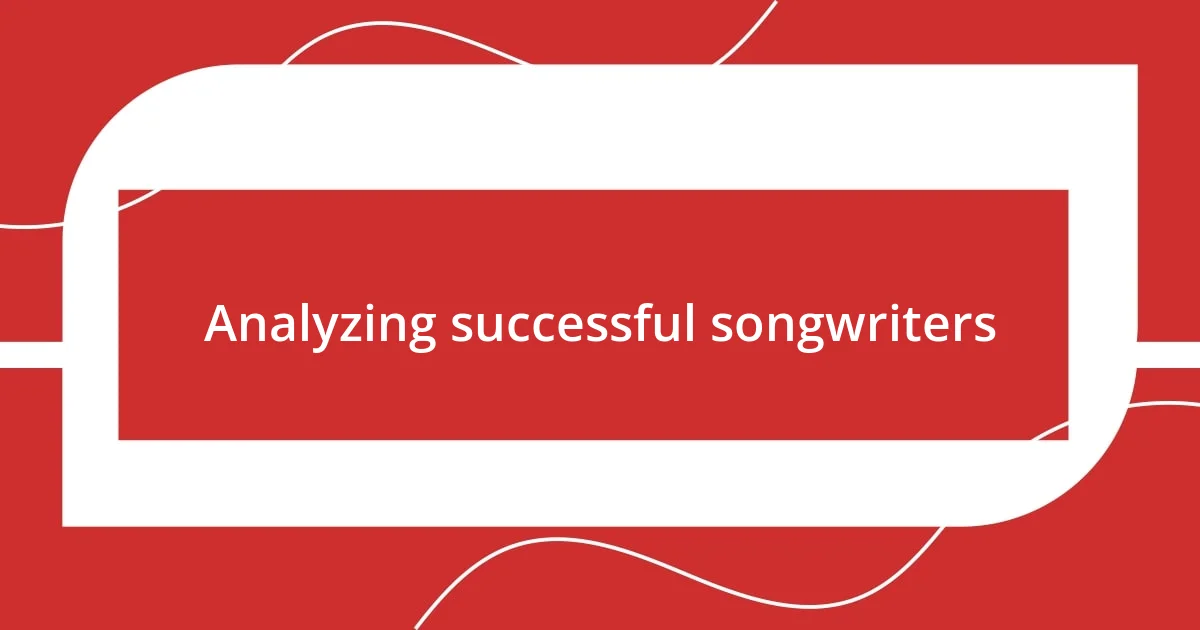
Analyzing successful songwriters
Successful songwriters often have a unique ability to weave their personal experiences into lyrics that resonate universally. Take Taylor Swift, for example; her songs such as “All Too Well” illustrate how she transforms specific moments into relatable narratives. I remember feeling an intense connection to her work because I, too, have cherished memories that evoke both joy and sadness. How powerful it is when a songwriter can encapsulate a fleeting experience in such vivid detail that it remains with you long after the song ends!
Then there’s Ed Sheeran, who skillfully blends storytelling with emotional honesty. In “Photograph,” he captures the fragility of relationships through both lyrics and melody, evoking a sense of nostalgia. When I hear that song, I can’t help but think of the photos I’d preserve to remind me of moments gone by. Isn’t it fascinating how a simple object can evoke such profound emotions?
Looking at these artists reminds me that successful songwriters know the importance of authenticity. They don’t shy away from expressing vulnerability. I once wrote a piece about my struggles with self-doubt, and the process was cathartic but also raw. When you embrace your flaws in your work, you invite your audience to connect on a deeper emotional level, which is where the magic truly happens.
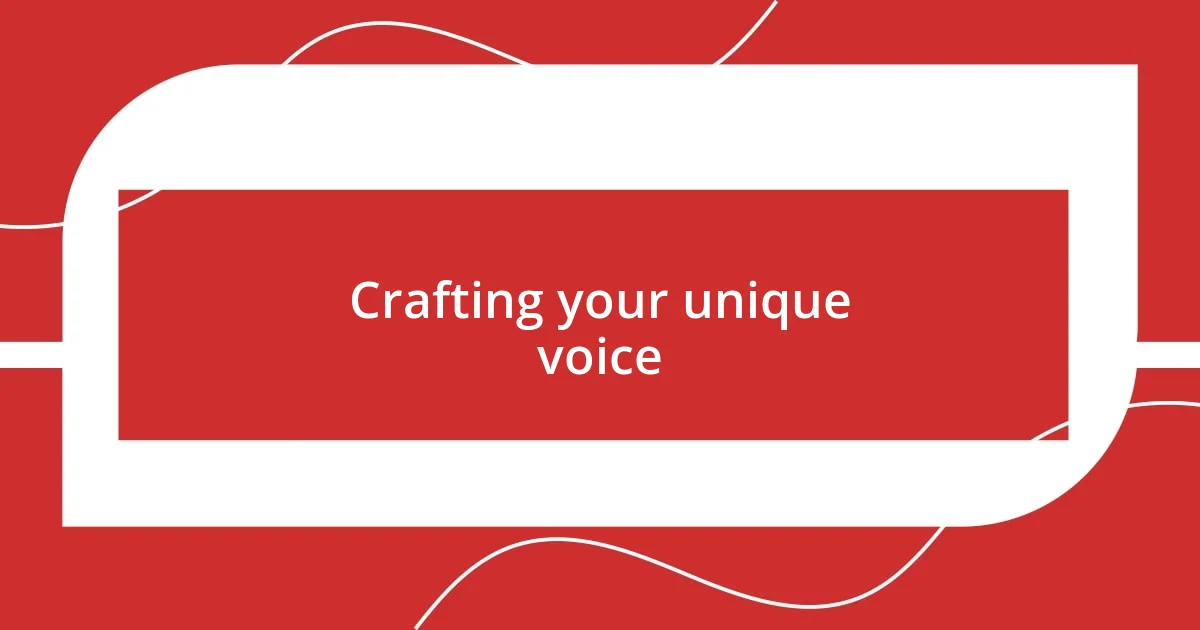
Crafting your unique voice
When crafting my unique voice in songwriting, I discovered that authenticity is key. I remember writing my first song after a challenging breakup; it felt like my heart was laid bare on the page. That rawness resonated not just within me but also with my friends who listened—it was like we were sharing a universal pain. How could I find my true voice if I masked my emotions?
As I continued to explore different styles and genres, I realized that blending influences from various artists helped shape my individuality. I experimented with pop melodies crossed with folk storytelling, a choice that initially felt risky. However, when I performed one of these songs live, I felt a rush of excitement as the audience connected with the fusion of sound and story. It’s incredible how stepping outside your comfort zone can lead to discovering aspects of yourself that were previously hidden.
I also learned the value of vulnerability in my lyrics, echoing my thoughts with candor. During one session while crafting a new song, I hesitated to write about my struggles with anxiety. But pushing through that discomfort allowed me to pen honest lines that came straight from my heart. Isn’t it remarkable how sharing our fears can actually empower others? It’s like creating a safe space where we can all relate and reflect together, deepening the impact of our artistic expressions.
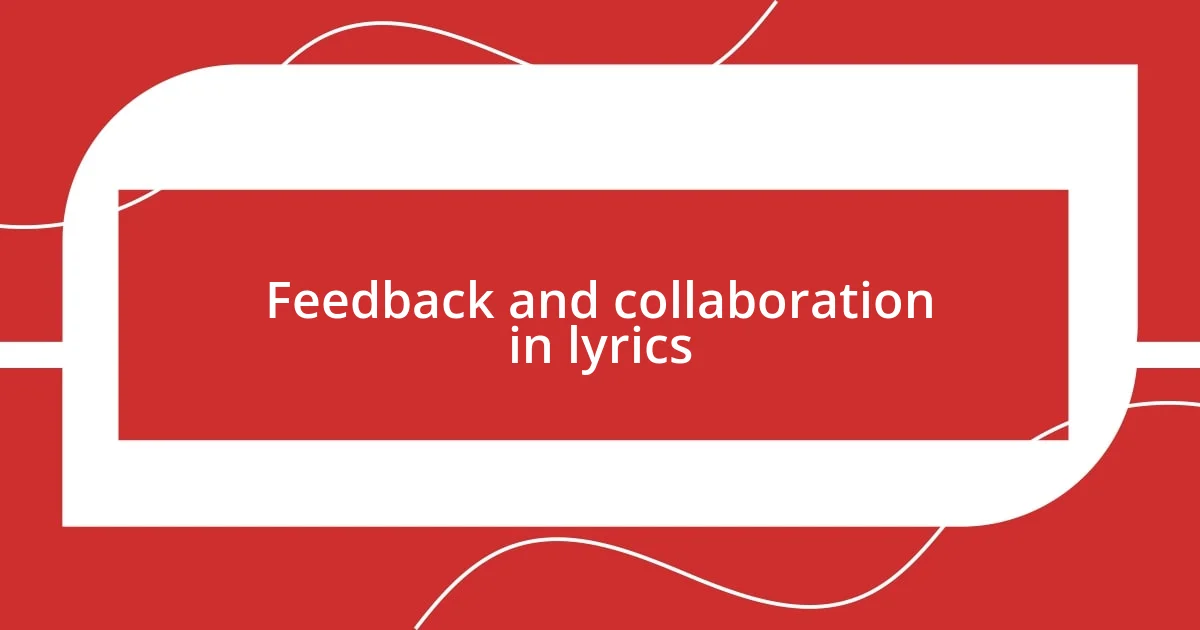
Feedback and collaboration in lyrics
Feedback and collaboration can transform the songwriting process in unexpected ways. I remember working on a song with a friend, and the moment they added a line that completely shifted the meaning, it was like a light bulb went off in my head. Have you ever experienced that rush of inspiration when someone else’s perspective breathes new life into your work? It’s a testament to how collaboration can expand our creative boundaries, often revealing insights we couldn’t see on our own.
Receiving feedback is another essential component of honing my lyrics. I once shared a draft with a fellow songwriter who pointed out that a particularly emotional stanza didn’t quite resonate. While my initial reaction was defensive, taking a step back allowed me to see their point. It served as a reminder that sometimes, an outside perspective can spot the flaws that we’re too close to notice. How often do we overlook the power of constructive criticism? Embracing feedback, even when it feels uncomfortable, has been invaluable in my journey.
Collaboration doesn’t just enrich my lyrics; it fosters a sense of community among artists. During a songwriting workshop, we paired up to co-write, and I found that bouncing ideas off others sparked creativity I didn’t know I had. It’s fascinating how sharing vulnerabilities and experiences can lead to musical magic. Have you ever felt that deep connection when harmonizing with someone else’s journey? It’s moments like these that remind me songwriting is not just about the final product, but the relationships we build along the way.
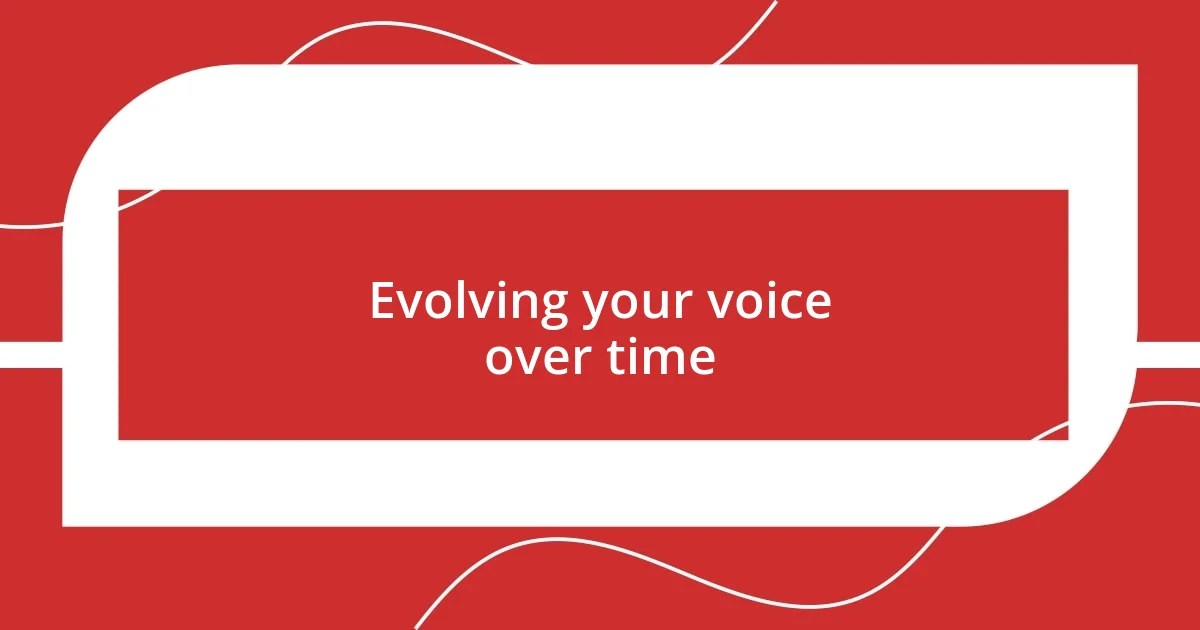
Evolving your voice over time
As I reflect on my journey, it’s striking how my voice has evolved alongside my experiences. I recall a phase when I relied heavily on clichés in my lyrics, thinking they sounded ‘safe.’ But over time, I noticed those lines didn’t truly represent me. How can we express our true selves if we stick to the familiar? Embracing vulnerability pushed me to dig deeper into my emotions, which has shaped my voice in profound ways.
Experiencing different life stages has also influenced my writing. After becoming a parent, my lyrics took on a new depth; I found myself writing songs filled with compassion and ambition. It’s as if my heart expanded, allowing new perspectives to seep into my melodies. Have you ever wondered how your personal growth impacts your creative expression? For me, it was a game-changer, letting me tap into a reservoir of feelings I hadn’t recognized before.
Additionally, I’ve learned to view writing as a continual journey. There are days when I feel my voice is crystal clear and others when I question if I’m even on the right path. I remember a particularly challenging time when feedback from a mentor made me rethink my direction entirely. Instead of feeling defeated, I was inspired to experiment again. Isn’t it exhilarating how fluid our artistic voices can be? This journey of evolution keeps the creative spirit alive and thriving.


